ANT204,
University
of
Toronto, Sociocultural Anthropology
2009-10
(click here to go to current year!)
Office: North bldg 242; Office hours: by
appointment, and: Wednesdays
11-2, Thursdays 2:10-3:10. "Virtual office
hours" online at Blackboard: always glad to answer questions on our
Blackboard
discussion board.
Instructor's email: dylan.clark
--> utoronto.ca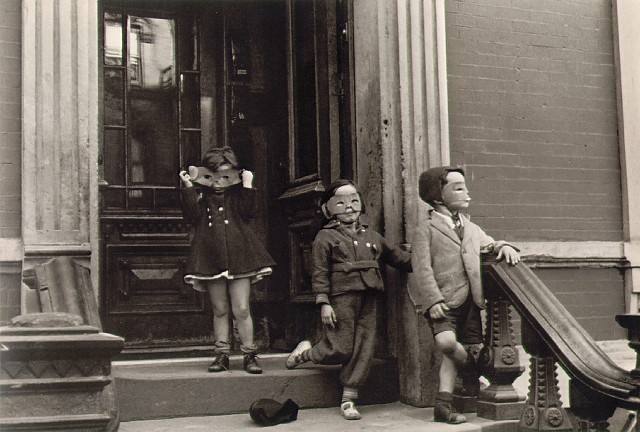
* Teaching assistant: Vivian Solana. (vivian . solana -- > utoronto.ca). Vivian’s office hours: 4-5 p.m every Monday room 202 at UTM
* We also
have a professional
marker, Jennifer Longaphy.
This is VERSION 4.3 March
15,
2010.
THIS SYLLABUS DYNAMIC: IT MAY BE UPDATED AT ANY TIME DURING THE
SEMESTER.
PLEASE CHECK IT OCCASIONALLY TO SEE THAT YOU HAVE A CURRENT VERSION.
STUDENTS
ARE RESPONSIBLE FOR KEEPING CURRENT WITH THE SYLLABUS AND THE CLASS.
(Most of
the updates are minor)
ANT204Y5 Sociocultural Anthropology (SSc)
A general introductory course emphasizing social and political
organization,
economics, and the development of theory. Specific cases of social
dynamics are
drawn from both traditional and contemporary societies. [52L, 26T]
Prerequisite: ANT(101H5,
102H5)/100Y5
This course is designed
to provide students with a vigorous
introduction to the field of socio-cultural anthropology. We will
review
many of the basic subfields of the discipline: kinship, political
anthropology,
the anthropology of gender, economic anthropology, the anthropology of
religion, and ethnography, that most vital practice of
socio-cultural
anthropology. Furthermore this particular course will help
students to
explore the dynamic and increasingly linkages between “culture” and
“capitalism.” In the process, we will try to understand why these
two
terms are both illuminating and problematic. By the end of this
yearlong
course, a student should be well versed in the basic components,
theories, and
paradigms of socio-cultural anthropology, and comfortable thinking
through the
relationships of capitalism and culture.
Course
grading:
midterm exam number one: 20%; midterm exam number 2: 20% final exam:
20%;
research paper. 20%. homework,
quizzes, and participation (combined): 20% (ratio of 6 percent for
attendance,
6 percent for oral contributions and positive, respective impact on
tutorial, 7
percent for unannounced quizzes.). Participation includes
attendance, preparation, arriving on time, not leaving early, and being
a
positive and respectful member of the class. Oral participation in your
tutorial is vital.
Quizzes are possible on
any day of tutorial. They will be based on
the current
reading only, not on previous reading.
This course requires a good deal of reading.
If you are unable to read a lot for this class, you should consider
dropping
the course. If you miss a quiz, there will not be a make-up. No
make-ups, that
is, except for medical emergencies and religious holidays (as approved
by
diversity officer on campus).
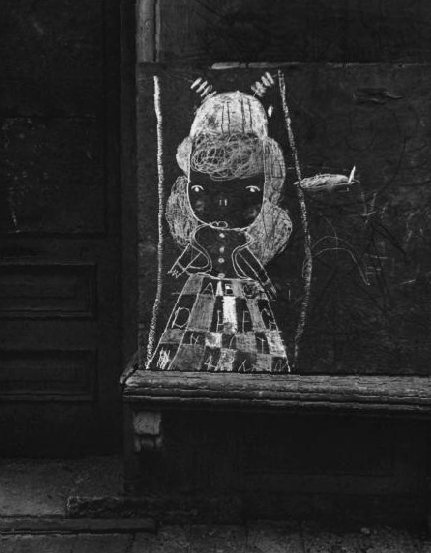 Course texts (required):
Course texts (required):
- Nanda/Warms: Culture Counts
- Ferraro: Classic Readings in Cultural Anthropology
- Herdt: The Sambia
- Mauss. The Gift.
- Fulcher: Capitalism: A Very
Short History
- Storey. Inventing
Popular
Culture.
- Ehrenreich. Dancing
in
the Streets: A History of Collective Joy.
Every one of these books should have resale value at the end of the
semester. I
strongly urge you to buy the books, because we will often study
passages
from the books together, during class. You will want to have
your
book(s) with you in class (bring only the book or books which have
reading
due that day) and you will probably want to mark important
passages in
the book, so that you may review them for exams and papers.
ALSO: All of the books will be on reserve at Library Circulation. Some
of the
videos are similarly on reserve.
If you're low on funds, get to know the interlibrary loan system. Many,
many more books
available when you use interlibrary loan. They will
send the book to UTM Library (or any library in the system):
Have a look at the interlibrary loan system. Many of these books are
available
in the library system. First come first served.
Course films: (To be announced)
________________________________________
Expectations, Policies, and Common Courtesy
Attendance: Students are
expected to attend all classes, including lectures and tutorials.
Punctuality: You are expected to arrive and be settled in your
seat by
the beginning of class or tutorial and to remain until the end of
class, or you
will only receive partial credit for tutorial attendance. Unless you
become
ill, do not begin packing up books or stand to leave before the end of
class or
tutorial, because this is distracting to all. If you know you cannot
stay for
the entire period, please sit near the door and leave very quietly.
Courtesy in Class: Every student is expected to pay close
attention in
the lecture or film. Refrain from talking during lectures and films,
except to
ask or respond to a question from the instructor. Even quiet talking is
distracting and disrespectful for your fellow students and your
instructor.
Turn off pagers and mobile phones. In tutorials, your undivided
attention and
courtesy is also expected; however, this is your opportunity to discuss
what
you are learning in class with your TA and one another. You are
encouraged to
thoughtfully ask and answer questions, but please, no confidential,
whispered
conversations. Anything you say should be directed to the class as a
whole.
Email Communication: Emailing with your professor or TA is a
form of
professional communication. Please write courteously and clearly; do
not use text-messaging
abbreviations or slang. Please clearly indicate your questions or
concerns. Be
sure to provide a summary of the email topic in the Subject line (do
not just
write “Hi”or
leave the Subject blank, or your email may be rejected as junk mail by
the UTM
server). You should ALWAYS use your UT email address if at all
possible.
The UT server regularly rejects Hotmail and Yahoo accounts as potential
spam.
Your message should be very brief, polite, and to the point.
(For example: subject; [ANT204] Question about Sept 12th
lecture.
Dear Professor Clark, I am having trouble with your claim that Africa
is an “idea”
Can you help explain this to me? Sincerely, Sara)
Please do not bother to explain your missing presence, your missing
papers,
etc. Generally speaking, something came up and you missed class. It is
your
responsibility to get notes from another student. Back up your computer
files,
start projects long before they are due, and study hard. You will not
be
excused from your work: just get the job done. In severe situations
(death in
the family, disabling illness, etc.) provide written proof.
If you qualify for accommodations because of a disability,
please submit
to me a letter from the proper UTM authorities in a timely manner so
that your
needs may be addressed. UTM has procedures to determine accommodations
based on
documented disabilities. If you have religious scheduling concerns,
please
report these in the first or second week of class. I will do my utmost
to
respect disabilities and religious issues if they should arise.
MID-TERMS and FINAL EXAMINATIONS
Both the mid-terms and the final exam will consist of multiple choice
and short
answer questions on ALL materials presented in the class and discussed
in
tutorial (readings, lectures, AND films). The final exam will not
be
cumulative. However, materials reviewed again in lectures will be a
part of the
final exam.
*MISSED EXAMS*
Avoid missing an exam - the procedure for taking a make-up exam is
strictly
regulated by the university, and these policies will be followed in all
cases.
Please notify the instructor by email or phone as soon as possible if
you miss
an exam.
* For the Mid-term Exam, see Section 7.9 “Term Tests” in the UTM
Calendar for
2009-2010. A valid doctor's excuse or similar university-approved
excuse will
be required to take the make-up for the mid-term. ONE makeup will be
given for
the mid-term, the week after the regular exam. All makeup exams will be
short
answer format only, not multiple choice.
* For the Final Exam, see Section 7.14 “Examinations” in the UTM
Calendar for
2009-2010. You will have to submit a petition to Registrarial Services, among
other requirements, and re-take the exam during the Deferred
Examinations
Period (possibly Feb. 2010 during Reading Week, or as otherwise
scheduled by
the university). All makeup exams will be short answer format only, not
multiple choice.
PLAGIARISM on exams and written work: You may get lecture or
tutorial
notes from other students for days when you are absent, but the answers
you
submit must be your own independent work. Exercises in which
duplication is
detected will be severely penalized. For more details, see Academic
Honesty;
and the Code of Behaviour
on Academic Matters in the UTM Calendar for 2009-2010 under Code of Behaviour
on Academic Matters. It is your responsibility to be familiar with this
code,
and adhere to it. IF you have any questions about what is or is
not
plagiarism, please see www. Plagiarism.org. Students will be required
to submit their course essays to Turnitin.com.
Instructions will
be provided. By now you should be aware that the university
expects your
work to be done independently. The university takes this issue
very
seriously. Any attempt to gain undue advantage over your
classmates by
plagiarizing or other forms of cheating will be dealt with according to
the
Code of Behaviour
on Academic Matters. The terms that apply to the University's use
of the
Turnitin.com service are described on the Turnitin.com web
site.
For further information you can refer to http://www.utoronto.ca/ota/turniitin/Conditionsof%20Use.html
LATE EXERCISES: (1) Late exercises will be penalized per
calendar day,
including weekends (Turnitin.com will register the time/date of your
submission).
________________________________________
Course Calendar:
Reading is to be done by the start of class.
Notes on reading:
* Read
both text and illustrations, except as noted.
Do
not fall behind. The reading is too challenging and too extensive to
cram
before an exam. When you have done your reading you will have a far
greater comprehension
of the lectures.
Bring
your readings to class.
FALL
SESSION 2009
week 1
No tutorials this week.
Sept 9 First day
of class. Ferraro; MINER, "Body
Ritual Among
the Nacirema,"
pp. 2-5 (skip intro. On
page 1).
Sept 11
NANDA/WARMS, pp. 2-20 (What is
Anthropology?), pp. 50-2 (“Anthropological
Techniques”).
week
2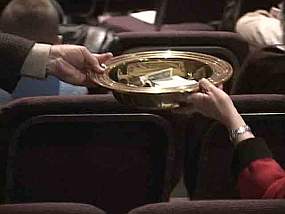
Sept 14. Tutorials. Ferraro:
KLUCKHOHN, "Queer Customs," pp. 6-12. Ferraro: R.B. LEE, "Eating
Christmas in the Kalahari," pp. 27-32.
Sept 16
Nanda/Warms, pp. 22-42 (Culture Counts).
Sept 18 Ferraro: EVANS-PRITCHARD (Witchcraft), pp 102-10; Ferraro:
GMELCH
(Baseball Magic), pp. 111-5
week
3
Sept
21 Tutorials.
Nanda/Warms, pp. 93-114. "Making a Living."
Sept 23 MAUSS, Introduction and chapter I, pp. 1-16
Sept 25 MAUSS, chapter II, pp. 17-45
week 4
Sept 28
Tutorials, MAUSS, Chapter III:
46-62
Sept 30 MAUSS, chapter IV: 63-81
October
2
Eben MOGLEN,
"The dotCommunist Manifesto." about 9
pages.
http://emoglen.law.columbia.edu/my_pubs/dcm.html
week
5
October
5
Tutorials. EHRENREICH,
Introduction, pp.
1-20. http://www.barbaraehrenreich.com/dancing_intro.htm
October
7
David
GRAEBER.
“The
anarchist anthropology that almost already does exist,”
pp. 21-37 in Fragments of an Anarchist Anthropology, http://www.prickly-paradigm.com/paradigm14.pdf (just print out
pages 15-20 from the pdf).
October 9
Ehrenreich, cha. 4, “From
the Churches to the Streets: The Creation of Carnival,” pp. 77-95
Week 6
October 12 Thanksgiving
holiday (no
tutorials). 
October
14
Ehrenreich,
cha.
5, “Killing
Carnival: Reformation and Repression,” pp. 97-118.
October
16
Mikhail
BAKHTIN.
http://www.wehavephotoshop.com/PHILOSOPHY%20NOW/PHILOSOPHY/BAKHTIN/Bakhtin,.Mikhail.-.Rabelais.and.his.world.Introduction.pdf
No need to read the whole thing. The most important (and required
reading) pages are 4-11.
Optional supplement: Excerpts
from Rabelais
and his World. http://www.radicalanthropologygroup.org/class_text_103.pdf
Optional.
Week 7
October 19
Tutorials. Marshall
SAHLINS, “The Original Affluent Society.” http://zinelibrary.info/files/the%20original%20affluent%20society.pdf
October
21Karl
MARX,
"Manifesto of the Communist Party."
(Chapter I: "Bourgeois and Proletarians."), about 14 pages
http://www.marxists.org/archive/marx/works/1848/communist-manifesto/ch01.htm#007
October 23
Nanda/Warms,
pp.
116-30
(up to "Market Exchange")
Week 8
October
26
Tutorials. Nanda/Warms, pp.
130-40
(Market Exchange, Capitalism)
October 28
FULCHER,
Chapter
1, pp. 1-18 (What is
Capitalism?)
October 30
Fulcher,
cha. 2, pp.
19-37 (Where did capitalism come from?) 
Week 9
November 2. Tutorials. Fulcher,
chap 3, pp. 38-57 (How did
we get here?)
November
4 Fulcher, cha 4 (Diversity of
capitalism)
November 6.
Fulcher, cha
5, pp. 82-103, (Global
capitalism?)
Week 10
November 9. Tutorials. Fulcher
chapter 6, pp. 104-128.
(Crisis what
crisis?)
November 11. Midterm
review.
Nanda/Warms.
"A Little History," pp. 46-50.
November 13 Nanda/Warms,
chapter 9, pp. 193-214, "Political Organization."
Week 11
November 16.
Ferraro: GIBBS, "The Kpelle
Moot," pp. 78-87.
November
18 Nanda/Warms, chap. 7, pp. 141-67, “Marriage, Family, and
Kinship.”
November 20. MIDTERM
#1 (based
on material from September 9 to November 11)
Week 12
November 23. Tutorials.
Nanda/Warms.
Chap 8, “Sex and
Gender.”169-92.
November 25 Ferraro: NANDA: Arranging a Marriage in
November 27 Ferraro: SCHEPER-HUGHES, “Death Without Weeping,” 53-60.
Week 13
November
30. Tutorials.
Ferraro: FRIEDL, “Society and Sex Roles,”
pp. 61-7 and Ferraro: SHOSTAK, “Women and Men in !Kung Society,”
pp. 68-77.
NO EXAM GIVEN DURING EXAM PERIOD. Good luck on your other exams
and have
a marvelous winter break. See you next year!
Winter
Session 2010
Week 1
January
4
Tutorials. Michel FOUCAULT,
“Docile Bodies.” (scan
to be posted on Blackboard)
January 6
EHRENREICH, chapters 6
(Puritanism and Military Reform)
January 8
Ehrenreich cha 7 (Epidemic
of Melancholy), pp. 119-154. [Topics: modernization, modern
militaries,
Foucault]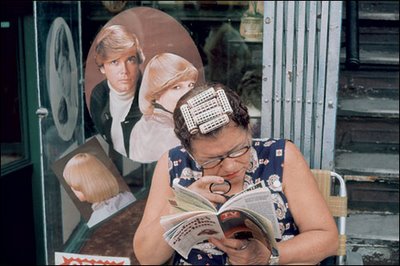
Week 2
January 11
Tutorials.
Nanda/Warms: chapter 13, “Power, Conquest, and a World System.”
288-310
January 13
(no
reading
assigned)
January 15 Ehrenreich, cha. 8, “Guns Against Drums:
Imperialism Encounters Ecstasy,” pp. 155-180
Week 3
January 18
Tutorials.
STOREY, cha.
1, “Popular Culture as Folk Culture,” pp. 1-15.
January 20 Storey,
cha 3, “Popular Culture as the Other of High Culture.”
January
22
Nanda/Warms,
cha.
10, “Inequalities: Class
and
Caste,” pp. 217-37.
Week 4
January 25
Tutorials.
Ehrenreich,
chapter 9, “Fascist Spectacles,” pp. 181-206.
January 27 Storey,
cha. 2,
“Popular
Culture
as Mass Culture.” Pp. 16-30
January
29
(no
reading assigned)
Week 5
Feb 1
tutorials Storey, cha 4,
“Popular Culture as an Arena of Hegemony,” pp. 48-62.
Feb 3 midterm
review
February 5
MIDTERM #2.
(based
on material from November 13- February 3).
Week 6
February 8
tutorials.
Nanda/Warms, cha.
12, “Religion,” pp. 263-84. 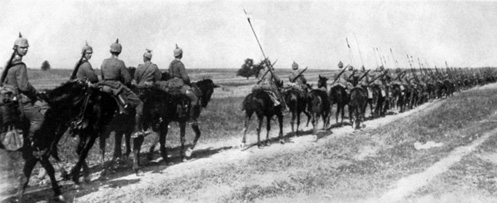
February 10 Herdt,
introduction (xi-xxiv) and chapter 1 (1-20) (possible film: “First Contact” (if
time))
February
12
Herdt,
chapters 2-3 (pp 21-54). Possible film:
"First Contact." (if time)
Week 7
READING WEEK
Feb 15 Holiday
Feb 17
no
class
Feb 19 no class
Feb 22 tutorials. Herdt, chapter 4, pp 55-94.
Feb 24 Herdt, finish chapter 4, pp. 94-122
Feb 26 Herdt, chapter 5
Week
9
March 1 tutorials; Herdt, chapter
6
March 3.
No reading assigned. Possible
film
(if
time): "Cannibal Tours." Helpful study guide from
Professor Christine Kray
at RIT: http://www.rit.edu/~cakgss/cannibaltours.html
March 5 Herdt, chapter 7
Week 10 
March 8
PAPERS DUE. OPTIONAL reading
(will not be on exams): Ehrenreich, cha. 10, “The
Rock
Rebellion,” pp. 207-224. (also online at http://www.writtenvoices.com/excerpt_display.php?isbn13=9780805057232). (If
you
want credit for this reading, discuss
on discussion board.) We plan on having
a required film in tutorials; one which is available only from the
library, not
online.
March
10 Hegemony and Space-Time Handout (Clark,
with Debord attached).
March 12
Ehrenreich, cha. 11, “Conclusion:
The Possibility of Revival,” pp. 247-62.
Week 11
March 15
Tutorials. Storey,
cha.
5 “Popular Culture as Postmodern Culture,” pp. 63-77
March 17 No reading assigned.
March 19
Storey, cha 6, “Popular Culture as
‘Routes’
and ‘Roots’ of Cultural Identities,” pp 78 -91
Week 12
March 22 Storey, cha 7, “Popular Culture
as Popular
or Mass Art,” pp. 92-107
March 24
No reading
assigned.
March 26 Storey, cha 8, “Popular Culture as Global
Culture,” pp. 108-20
Week 13
March 29
Tutorials. Nanda/Warms. Chapter
14,
“Globalization and
Change,” 311-36
March 31 Last
class.
GRAEBER,
“Blowing up walls,” pp. 38-64 in Fragments, http://www.prickly-paradigm.com/paradigm14.pdf (just print out
pages 21-34 from the pdf).
April 2
HOLIDAY. No class.
April
2-7 Study week.
April XX: FINAL EXAM.
Date/Time
to be
determined by UTM. (based
on material from February 8-March 31)
April
22 Thu 12:00
PM
3:00 PM
(place to be determined)